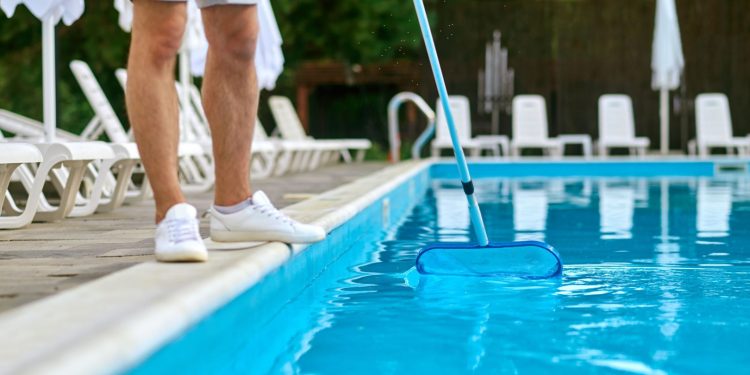Swimming pools are a hub of activity during warm seasons, offering a place to cool off, exercise, and enjoy with friends and family. However, maintaining a hygienic swimming environment is essential to prevent the spread of infections and ensure the safety of all swimmers. This blog provides detailed tips on how to maintain healthy swimming pool hygiene, ensuring a clean and safe swimming experience for everyone.
1. Shower Before Swimming
Taking a shower before entering the pool can significantly reduce the amount of dirt, sweat, and other contaminants that enter the water. This simple step helps maintain the pool’s cleanliness and reduces the need for excessive chemical treatments.
2. Maintain Proper Chlorine Levels
Chlorine is essential for killing harmful bacteria and pathogens in pool water. Regularly check the chlorine levels and ensure they are within the recommended range of 1 to 3 ppm (parts per million). Too little chlorine can lead to bacterial growth, while too much can cause skin and eye irritation. Regular monitoring and adjustment are crucial for maintaining a safe swimming environment.
3. Monitor pH Levels
The pH level of the pool water should be kept between 7.2 and 7.8. Maintaining the correct pH balance ensures the effectiveness of chlorine and prevents irritation to swimmers’ skin and eyes. Use a pool test kit to regularly check and adjust the pH levels as needed. Proper pH levels also help in preventing the corrosion of pool equipment and surfaces.
4. Encourage Proper Swimwear
Encourage swimmers to wear appropriate swimwear made of materials designed for swimming. Avoid wearing regular clothing, which can carry dirt and bacteria into the pool. Swimwear should also be rinsed thoroughly before entering the pool to remove any residual soap or detergent. Proper swimwear reduces the introduction of contaminants and helps maintain the pool’s hygiene.
5. Enforce Bathroom Breaks
Make sure everyone takes regular bathroom breaks, especially children. This helps prevent accidents in the pool. Encourage parents to take young children to the restroom frequently and always use swim diapers for infants and toddlers. Regular bathroom breaks help maintain the cleanliness of the pool and reduce the risk of contamination.
6. Avoid Swimming When Ill
If you or your child is feeling unwell, especially with gastrointestinal issues, it’s best to avoid swimming. Illnesses can spread quickly through pool water, affecting other swimmers. Staying out of the pool when ill helps prevent the spread of infections and protects the health of other swimmers.
7. Clean Pool Surroundings
Keep the pool deck and surrounding areas clean. Sweep away debris, leaves, and dirt regularly to prevent them from being tracked into the pool. Ensure that poolside furniture, toys, and equipment are cleaned and stored properly when not in use. A clean pool environment helps in maintaining the overall hygiene and safety of the swimming area.
8. Regular Pool Maintenance
Regularly clean the pool’s filters, skimmers, and pumps. These components play a vital role in removing debris and maintaining water circulation. A well-maintained filtration system helps keep the water clear and hygienic. Routine maintenance prevents the buildup of contaminants and ensures the smooth operation of the pool.
9. Educate Swimmers
Educate swimmers about the importance of pool hygiene. Simple practices like not spitting or blowing the nose in the pool, avoiding swimming with open wounds, and not swallowing pool water can make a big difference in maintaining a healthy swimming environment. Informing swimmers about hygiene practices helps in creating a collective effort to maintain the cleanliness of the pool.
10. Conduct Regular Inspections
Regularly inspect the pool for signs of contamination or maintenance issues. Check for any discoloration of the water, unusual odors, or any changes in water clarity. Promptly address any issues to prevent the spread of infections. Regular inspections help in identifying potential problems early and ensure the pool remains safe for use.
Maintaining healthy swimming pool hygiene is a collective effort that involves both pool owners and swimmers. By following these tips, you can ensure a safe, clean, and enjoyable swimming experience for everyone. Regular maintenance, proper chemical balance, and good personal hygiene practices are key to keeping your pool in top condition and protecting the health of all swimmers.
For more health and wellness tips, visit A Health Place Read More - How Nutrition Plays a Role in Maintaining Healthy Ears










